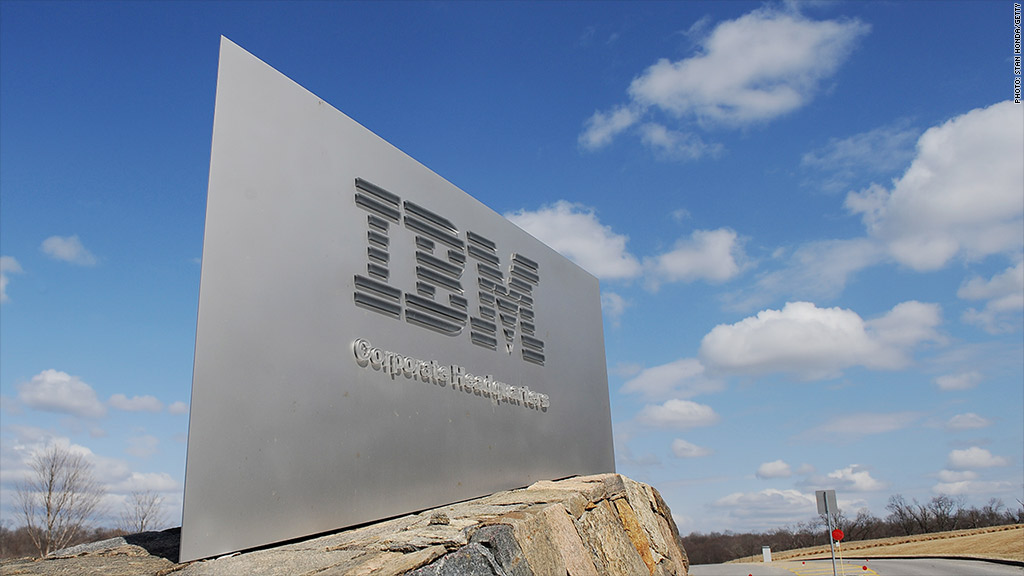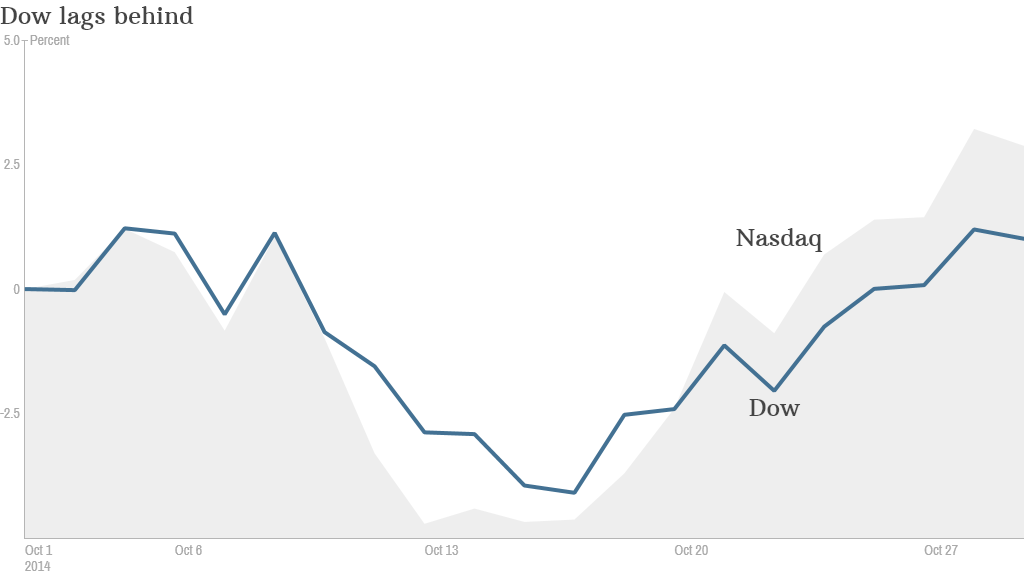
America loves a good comeback story. Especially when the stock market is the protagonist.
Investors were having panic attacks mid-month. Nearly all the gains for the year were wiped out. Now the Nasdaq and S&P 500 are both positive for October and way up for the year. The Nasdaq is up over 1% this month alone.
But a funny thing happened during this big rebound: The Dow Jones Industrial Average -- the index representing 30 of America's largest and most well-known companies -- got left behind.
The Dow has struggled to get out of negative territory for the month. (It finally did it Thursday, but it's still lagging the other indexes by a good margin).
What happened to these supposed "Blue Chip" companies?

1. Bigger isn't always better. Normally investors think of the Blue Chip names as solid, stable companies. The Dow has household brands like Boeing (BA), AT&T (T) and McDonald's (MCD) that are known around the world. But lately, Blue Chip has been a bit of a euphemism for "stale."
Almost half of the companies in the Dow -- 11 of 30 -- are down more than 1% for October.
McDonald's can't quite find its place as people want healthier options. Coke (KO) is in a similar position. While rival Pepsi (PEP) (not a Dow member) has been able to leverage its snack food business as soda revenue declines, Coke hasn't figured out a new formula.
Related: McDonald's gets burned in Asia
"Businesses are competing with nimble, newer and faster companies," says Tim Anderson, Managing Director at MND Partners.
IBM (IBM) was an especially large blow in October. It announced the sale of its chip unit for a nearly $5 billion loss and followed that up with lackluster quarterly results and little optimism about the coming months. The company cited "the unprecedented pace of change in our industry." The stock tanked and is still down about 14% for the month.
There's an identity crisis going on among several of America's large companies. Even GE (GE) is negative for the year and facing pressure to break itself up and restructure.
Despite the fact that the U.S. economy is improving, investors aren't certain that these specific brands in the Dow are going to benefit until they get their big picture strategies sorted out.
Related: How much should a young worker save for retirement?
2. The Dow is just odd. There's a reason a lot more people invest in funds that mimic or track the S&P 500 than the Dow. The Dow started in 1896. While America's economy grew, it still has a mere 30 firms in the index (compared to the 500 in the S&P or the nearly 3,000 in the Nasdaq).
And while other indexes typically weight the companies equally, the Dow is price weighted. So companies with larger share prices have more sway. That's especially problematic when IBM -- the third biggest weight in the Dow -- goes down.
"The Dow is just a very narrow index," says Russ Koesterich, BlackRock's Chief Investment Strategist. "If you look at a broader measure like the S&P 500, large cap companies are doing better than small cap during the sell-off, but the Dow is very idiosyncratic."
Koesterich thinks large company stocks actually offer some of the better bargains in the market at the moment, just not necessarily the ones in the Dow.
Related: CNNMoney's Fear & Greed Index indicates 'fear'
Some go as far as saying the Dow isn't representative of American business anymore.
CNNMoney's Paul La Monica has often asked a simple question: Why the heck isn't Apple in the Dow? It's arguably the most valuable brand in the world and its stock trades right around $100, yet it's not in "the club," while Cisco (CSCO) and Caterpillar (CAT) are.
3. Blame the hedge fund types. The final factor at work in the Dow's lagging October performance might be traders and hedge funds.
After the big dip, many investment professionals did whatever they could to pare their losses. They looked for stocks likely to go up quickly. Those are momentum stocks -- typically tech and bio tech and smaller companies -- not the big, slow Blue Chips.
"Hedge funds, momentum funds and funds that are subject to withdrawals every six months have a real problem holding dead money stocks," said Anderson.


